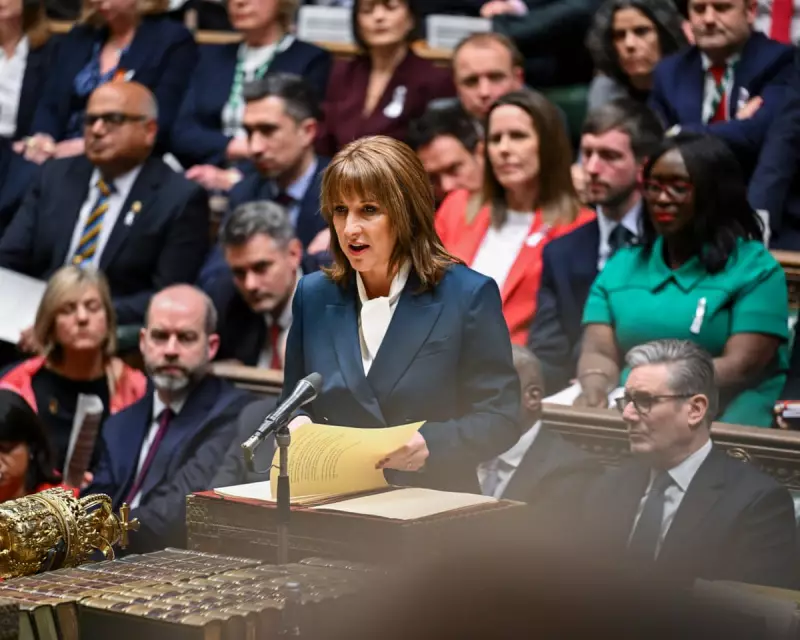
Chancellor's Budget Offers Hope for Families Amid Fiscal Warnings
Chancellor Rachel Reeves presented her first major budget to the House of Commons on Wednesday, unveiling a package of measures that promise significant relief for struggling households while drawing sharp criticism from fiscal watchdogs. The budget represents Labour's ambitious attempt to tackle the cost of living crisis while maintaining economic stability.
Progressive Measures Signal Shift in Priorities
The centrepiece of Reeves' announcement includes several landmark policies that mark a clear departure from previous approaches. The abolition of the controversial two-child benefit cap stands as the most significant social reform, a move that will lift an estimated 350,000 children out of poverty. This long-demanded change addresses what many campaigners had described as a cruel limitation on support for larger families.
Additional progressive measures include substantial increases to gambling taxes, a freeze on rail fares to ease commuting costs, and the implementation of a mansion tax targeting high-value properties. The Chancellor also outlined a "managed transition" plan for the North Sea that balances workers' interests with the shift toward clean energy, avoiding an abrupt abandonment of oil and gas industries.
These interventions have been widely praised by social advocates and represent what many see as a welcome reorientation of government priorities toward supporting the most vulnerable. For backbench Labour MPs, these headline-grabbing policies help mitigate concerns about earlier proposed welfare cuts that had caused considerable internal party friction.
OBR Exposes Conservative Economic Framework
Behind these popular announcements lies a more contentious economic framework that has drawn scrutiny from the Office for Budget Responsibility. The independent fiscal watchdog's analysis reveals that despite the progressive individual policies, the overall strategy remains fundamentally conservative in its macroeconomic approach.
The OBR warns that £26 billion in tax increases will fall heavily on workers, accompanied by declining investment, stagnant growth prospects, and flat wage expectations. Perhaps most alarmingly, the budget relies on a fiscal debt rule that the OBR describes as meeting its targets on what amounts to "a coin toss."
Looking further ahead, the watchdog projects that unless the Treasury finds an additional £21 billion, unprotected public services including local councils, courts, and police forces will face austerity-style cuts of 3.3% annually from 2029 to 2031. The Chancellor's self-imposed fiscal rules effectively make these cuts inevitable according to the OBR's assessment.
Growth Mission Faces Reality Check
The Treasury's optimistic growth projections stand in stark contrast to the OBR's more pessimistic outlook. Despite declaring growth its "central mission," the government admits that GDP will inch forward at just 1.5% per year, a rate that fails to address the underlying economic stagnation.
Compounding these challenges, the continuing drag from Brexit continues to depress both trade and investment, creating additional headwinds for the economy. The glaring discrepancy between the Treasury's optimism and the OBR's caution has raised questions about the government's handling of economic forecasting.
In what critics describe as a concerning move, the Chancellor has decided to reduce OBR scrutiny by halving annual checks to just one per year, justifying this as necessary for "policy certainty." This reduction in independent oversight comes as the OBR directly challenges the Treasury's narrative on inflation, noting that cutting state-controlled prices like energy bills would more effectively reduce inflation than the current approach.
Economic think tanks including the Joseph Rowntree Foundation and New Economics Foundation advocate for fairer fiscal policies, with the latter specifically calling for aligning capital gains tax with income tax rates. They argue that if Labour genuinely seeks fairness, it must properly tax wealth rather than relying predominantly on taxing work.
While the budget delivers immediate relief for children and families in need, the underlying framework suggests continued challenges ahead. The OBR has essentially revealed that the current numbers imply politically impossible cuts, predicting that Labour will inevitably need to spend more money at the next spending review. The system appears engineered to allow the Treasury to "find" money by revising growth estimates upward - a manoeuvre that will face less scrutiny with reduced OBR oversight.
This situation highlights what Westminster often overlooks: that money is ultimately political. The state can create fiscal space when it chooses, and the economy revives when government spending flows. Stagnation may only end when the government stops starving the system of necessary investment.





